1880s-1910s: John

Popularity in the US in 2014: No. 26
Meaning: God is gracious
For the first 40 years that the Social Security Administration kept track of names — and likely for a long time before that — John, a strong, Hebrew derived name with Biblical cred, was far and away the most popular for boys. And it's still a Top 30 contender today. That's why it's no surprise that five of our most notable presidents (John Adams to JFK) and a wide range of men at the top of their game (Beatle John Lennon, tennis pro John McEnroe, astronaut John Glenn, filmmaker John Hughes) share it. Seriously, the list is endless.
1880s-1950s: Mary
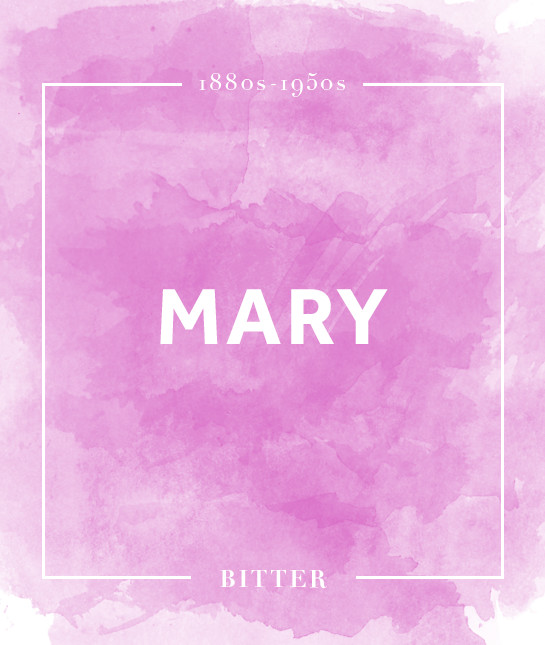
Popularity in the US in 2014: No. 120
Meaning: Bitter
Yes, there is something about Mary. Of all girl names, Hebrew-derived Mary was one of the most abiding — so much so that an accompanying middle name (Mary Grace, Mary Elizabeth, Mary Ellen) was almost de rigueur. And then, suddenly, it wasn't. By 2011, the popularity of Mary had fallen 94 percent. While it shows no signs of a comeback, its Biblical roots keep it afloat, even if it's no longer in the Top 100.
1920s-1930s: Robert
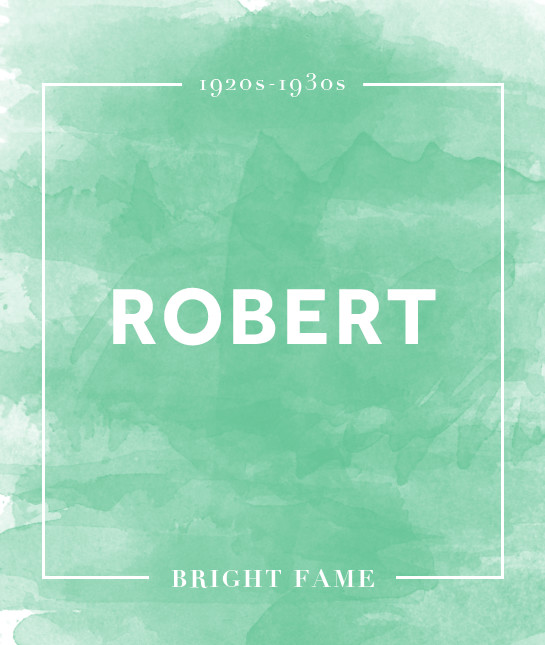
Popularity in the US in 2014: No. 61
Meaning: Bright fame
By the 1920s, John had slipped slightly, making way for the the up-and-comer Robert, which held strong at No. 1 for two decades. Another classic, German-derived Robert, when used today, is often a family name, giving way to myriad nicknames like Bob, Bob Jr., Bobby, Rob, Robbie. Like John, you can't throw a stone without hitting a famous Robert, from the poet Robert Frost to the now-infamous billionaire psychopath Robert Durst.
1940s-1950s: James
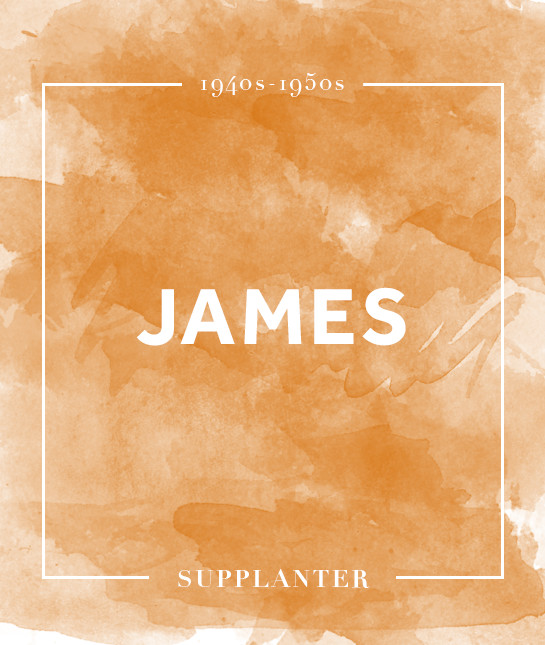
Popularity in the US in 2014: No. 9
Meaning: Supplanter
By the 1940s, a new boy name slipped into No. 1: James. A longtime also-ran, Hebrew-derived James was — and remains — a true classic. And now it's sometimes used for girls as well — a huge gender-bender for such a straight-up masculine name.
1960s-1990s: Michael

Popularity in the US in 2014: No. 7
Meaning: Who is like God
The cultural shift of the 1960s shows up everywhere — even in baby names. Hebrew-derived Michael broke through in the '60s, stayed at No. 1 for the next three decades and really hasn't budged much, remaining a Top 10 name currently. Talk about staying power. Like James, it retained a timeless character, classic without being stale. For those who name aspirationally, there's no shortage of superstar Michaels, from sports to the silver screen.
1960s: Lisa
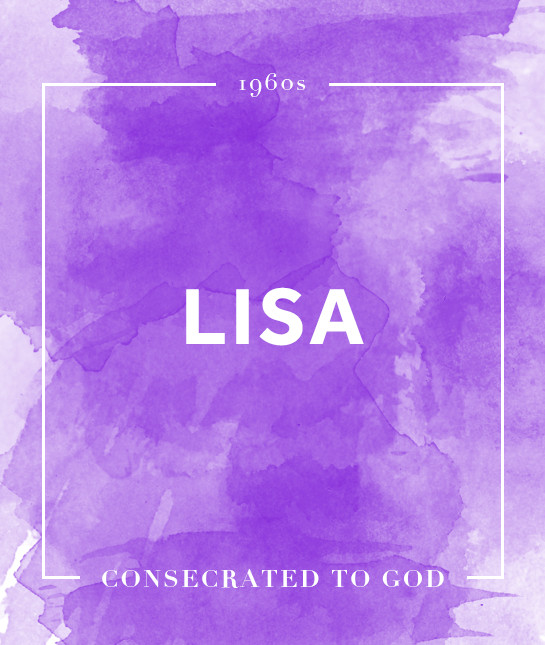
Popularity in the US in 2014: No. 750
Meaning: Consecrated to god
Lisa was a casual, modern and distinctly American derivative of Elizabeth (which, now that old names are new again, has renewed status). For about a decade, it made its mark — and has since mostly disappeared. It's a truly rare occasion for a Lisa, which is a Hebrew name, to show up in kindergarten roll call in 2015.
1970s: Jennifer

Popularity in the US in 2014: No. 220
Meaning: Fair spirit
The name Jennifer is so synonymous with coming of age in the '70s and '80s that it has made it into countless song lyrics, from Donovan to De La Soul — and, lest we forget, Jenny from the Block. A variant of Juniper, which has that cool modern eco vibe to it, Jennifer now has the same dated feel as Lisa.
1980s-1990s: Jessica
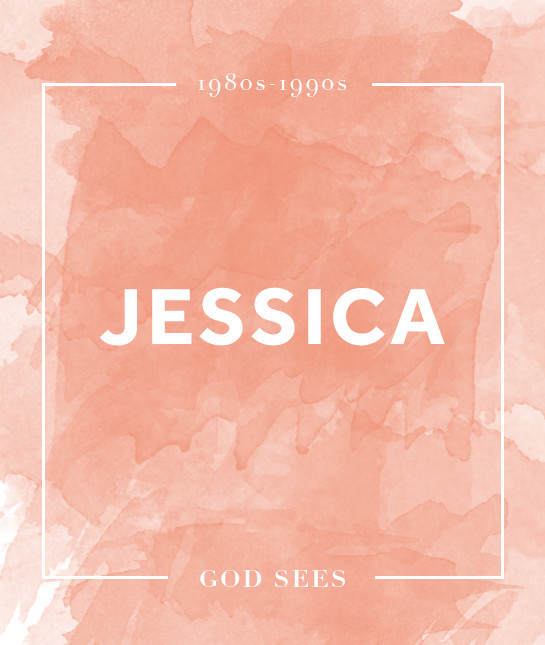
Popularity in the US in 2014: No. 179
Meaning: God sees
Jessica, a solid Top 10 selection, broke through in the '80s, a somewhat surprise win over Jennifer. And it remained so for about 20 years. Those babies are now the formidably beautiful women who grace red carpets and gossip mags alike: Jessica Alba, Jessica Simpson, Jessica Biel, Jessica Chastain.
2000s: Jacob

Popularity in the US in 2014: No. 4
Meaning: Supplanter
With a new century comes new baby names — that comes as no surprise. Hebrew-derived Jacob's decade-plus tenure was fueled, in part, by the J-name trend and the Biblical thing, plus the great nickname Jake. But now, as with many of top names, sheer ubiquity has tarnished its sheen a wee bit.
2000s: Emily

Popularity in the US in 2014: No. 7
Meaning: Striving
A Top 3 name in the '90s, Emily finally took No. 1 at the turn of the century after a nice, slow and steady rise. Its old school charm plus literary cred (think: Emilys Dickinson and Bronte) appeal to classicists and feminists alike. Knocked out of the Top 5 in the 2010s by the forces of Sophia, Ava, Emma, Isabella and Ava, Emily is still classic enough to defy trends.




